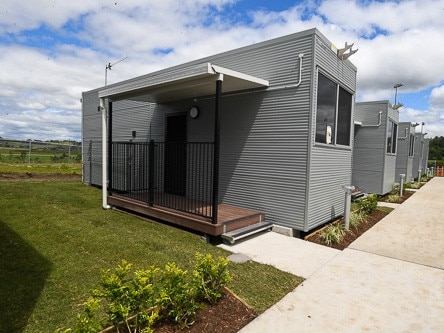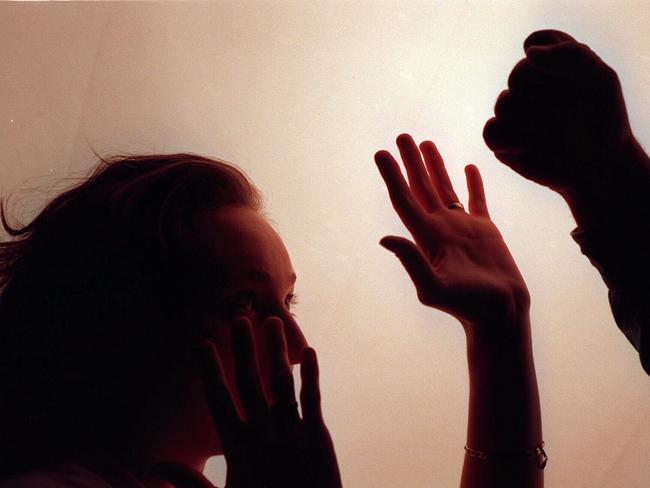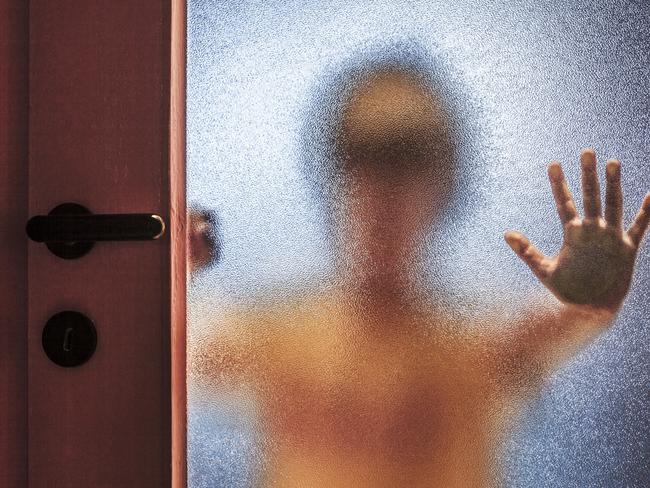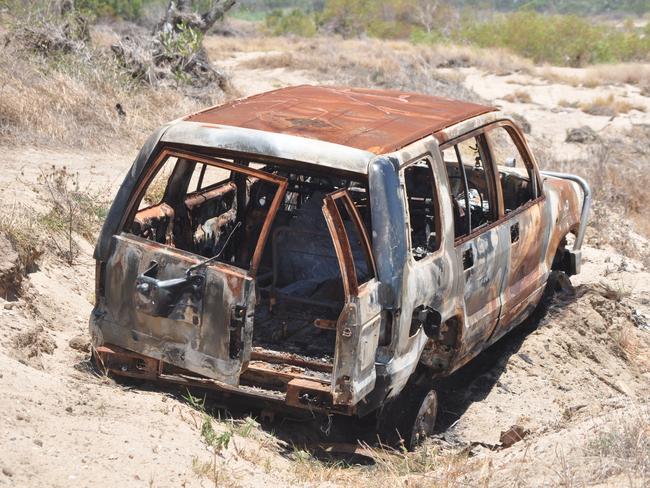Northern Rivers floods force domestic violence victims to stay with abusers
When an abused NSW woman learned her partner was an alleged bikie associate who spent years in jail, she tried to flee with her son. But the 2022 flood has heightened the housing crunch.
Ballina
Don't miss out on the headlines from Ballina. Followed categories will be added to My News.
When Lilian* learned her partner was an alleged bikie associate who had spent four years in jail for grievous bodily harm, she fled the Ocean Shores home they had been sharing.
Together with her seven-year-old son Liam*, she rented two places along the coastline but she says he “keeps finding us” and is running out of options.
Lillian thought she was one of the lucky ones to escape her violent partner but she says it’s difficult to completely escape.
Domestic violence victims across northern NSW are being forced to stay in homes with their abusers as the housing crunch continues post-floods.
This month marks a year since the Northern Rivers experienced record water-levels that damaged more than 11,000 properties and made more than 4000 homes uninhabitable.

Hundreds remain homeless while many have moved into makeshift homes, caravan parks and purpose-built pods.
NSW had a housing and homelessness crisis before the floods, with Community Housing Industry Association NSW stating 50,000 applicants were on the social housing waiting list.
The North Coast was already at the forefront of the crisis – with 250 people on the priority housing waiting list at June 2021 and a 0.5 per cent private rental market vacancy rate.
The 2021 Tweed, Byron Bay and Lismore homelessness street counts identified more than 300 people sleeping rough.
A tragic consequence of the existing housing crisis, combined with southerners moving north during Covid and then the floods, means domestic violence victims are unable to safely flee their persecutors.
Lilian first managed to rent a garage in South Golden Beach and then another place in Ocean Shores.
“(My former partner) found us there, and then he stole my car and burned it out,” she said.
“Then in Ocean Shores, he removed the front door off its hinges and came into the bathroom while I was showering.”

Lilian found temporary accommodation but the place is being sold and had to relocate on the weekend.
She said she had made “in excess of 150 applications to real estate agents” and it was a full-time job attending house inspections.
Lilian said having a son diagnosed with PTSD and autism also made it impossible to find a third safe place for them to rent in the region.
“My son has a therapy dog and they don’t want to lease to people with pets,” she said.
“My son is about to be eight years old next week and he won’t get a birthday and hasn’t for the past three years.
“I can’t offer it to him if there’s nowhere to have it.
“I’m finding it hard to go to my mailbox, my neighbour takes my bin out and brings me my mail.
“Every time I hear a Harley (Davidson) I freeze and start shaking.

“My son’s therapy dog alarms us to sounds at night thank God, but having him is making it really hard for us to rent.”
Lillian alleges her former partner is “involved in organised crime and closely linked to bikies in the Gold Coast, Ballina and Lismore”.
She claims he has threatened to “knock off” both the domestic violence survivor and her mentally-impaired son and has an apprehended violence order in place.
“‘I’m going to have you and your kids knocked’, that’s what he said to me,” she said.
“That’s why I think I need to move somewhere (else).”
Lillian said some safe houses from Lismore to Tweed Heads had been given away to displaced flood victims.
“There’s nowhere for domestic violence victims to go in the Northern Rivers,” she said.
“I’ve spoken to the Department of Communities and Justice and the two homes they could’ve offered to us, they’ve given to flood victims.”

Domestic violence advocate Kylie McKenzie said Northern Rivers’ Women’s Domestic Violence Court Advocacy Service received a lot of referrals for women whose “number one priority” was housing.
“They can’t think past their immediate needs of safe housing,” the acting manager said.
“There aren’t enough places.”
Ms McKenzie said women were now forced to stay with perpetrators in their home instead of having stable housing options enabling them to leave.
But moves are afoot in NSW to help women avoid domestic violence situations from the outset.
The Right to Ask scheme proposed in January this year allows police to disclose information to a person about their partner’s previous offending.

NSW Premier Dominic Perrottet said there were too many stories of women and men being hurt or murdered in circumstances where the perpetrators had a history of prior domestic and violent criminal offences.
At least 67 women’s lives were lost to alleged murder, manslaughter and other offences in the 12 months from January 1, 2022 to December 31, 2022.
Most of the deaths happened in Queensland, NSW and Victoria.
This was an increase of 18 deaths from 2021 when 48 women were allegedly murdered or lost to manslaughter.
The rate of killings in 2022 means one women died, on average, every five and a half days.
In Lilian’s case, it was a group of mums at her son’s school who sounded the alarm.
“He would bring my son to school and the other mums asked me why he was near my son,” she said.
“Just Google him,” they said. “Google him, he’s bad news’.”
Lilian said her former partner did jail time for stomping on the head of a man who had complimented his then girlfriend.
But Lilian “had no idea who he was” in 2019 when she met the man who would eventually steal her car and burn it out, drag her by her hair and lock her out of their house for questioning his criminal history.
She also had no idea she would be cooped up with an abusive partner and her child during a pandemic and a flood.

A study from Australia’s National Research Organisation for Women’s Safety found natural disasters including pandemics bred volatile domestic violence situations because of the stress of enduring tough circumstances or being stuck inside with family or an intimate partner.
The survey says Covid created a “shadow pandemic” where domestic violence escalated or happened for the first time to a huge proportion of Australian women.
A NSW Police Force audit assessing domestic violence crimes from 2016 to 2021 found the service responded to an overwhelming volume of cases like Lilian’s.
The audit report, handed down in April 2022, found more than 140,000 domestic and family violence calls for help every year – equating to one call every four minutes.
NSW Bureau of Crime Statistics and Research data said the number and volume of domestic and family violence crimes had doubled over the five years studied.
Lilian said she was “thankfully supported” through Rentstart, a government program helping domestic violence survivors set up and maintain a tenancy in the rental market.
“I pay 25 per cent of the advertised rent and the government pays the remaining rent for the next three years,” she said.
“Which is why it’s crazy I still can’t get a house. Landlords could be absolutely sure that they’ll have their money from me.”
* Lillian and Liam are not their real names. Their identities have been removed for their protection.




